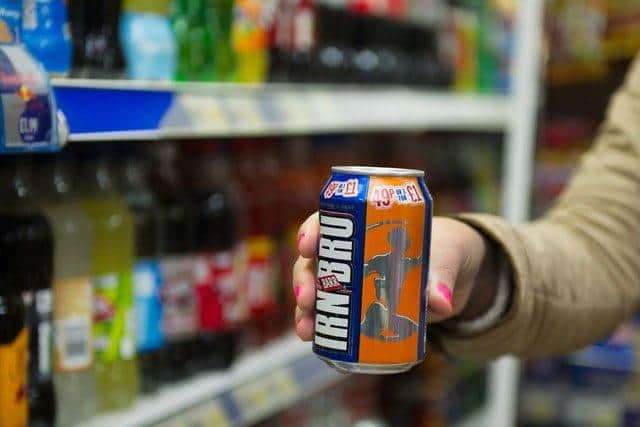Sugar tax: Banning promotions more effective, finds pioneering study
It is the first study to compare the controversial levy, introduced in 2018, with banning price promotions.
Researchers found spending on sugary drinks dropped by more than a third (36 per cent) after a ban on promotions, compared to just one per cent following the tax.
Advertisement
Hide AdAdvertisement
Hide AdThey studied data on 2,568 households in Scotland, comparing spending habits before the tax was introduced and afterwards.


The study also found that the effect of either policy depends on lifestyle factors, including income, stage of life and location.
Those in more deprived areas were more likely to continue buying sugary drinks despite the tax.
Dr Wisdom Dogbe, Research Fellow at Aberdeen University’s Rowan Institute and lead author on the study, said Scotland must consider all possible routes to reducing the consumption of sugary drinks.
“The consumption of high sugar products such as soft drinks are a major cause of obesity and diabetes which is why it is important to explore all ways to reduce the excessive consumption of such foods,” he said.
“This is the first study comparing the effectiveness of the soft drinks levy to mandatory restrictions on promotions for soft drinks. In addition, we compare the impact of both policies on different groups of consumers – income levels, location, life stage and Scottish index of multiple deprivation.”
Dr Dogbe also suggested “targeted policies” based on the varying results seen in the study.
He said: “Studies assessing the impact of the soft drinks levy has concluded that the policy is very effective.
Advertisement
Hide AdAdvertisement
Hide Ad“However, the results from our study suggest that banning promotions on soft drinks would be more effective in reducing calorie and sugar purchases than taxing soft drinks.
“Effectiveness of the ban on promotions varied by the socioeconomic characteristics of the household i.e. lower-income households, pre-family households, households in remote small towns, and households living in the most deprived areas in Scotland.
"This advocates for targeted policies instead of the usual one-size-fits-all governmental policy.”
A message from the Editor:
Thank you for reading this article. We're more reliant on your support than ever as the shift in consumer habits brought about by coronavirus impacts our advertisers.
If you haven't already, please consider supporting our trusted, fact-checked journalism by taking out a digital subscription.
Comments
Want to join the conversation? Please or to comment on this article.